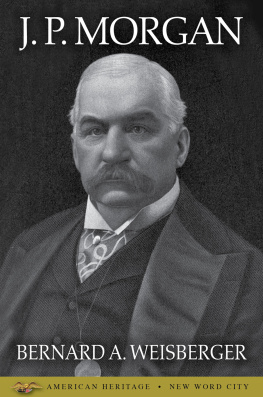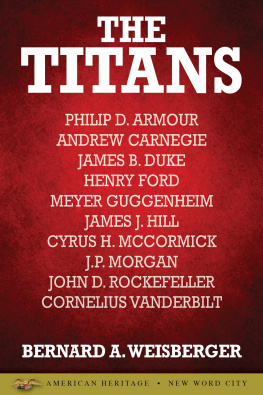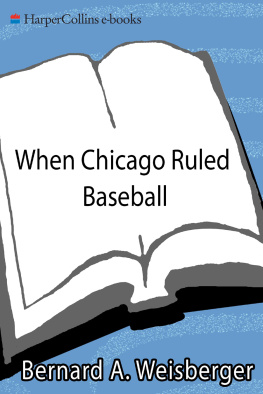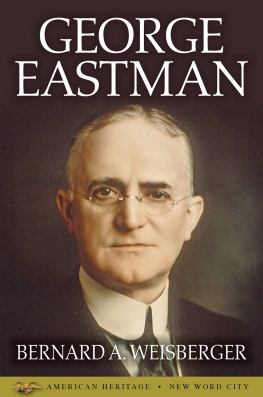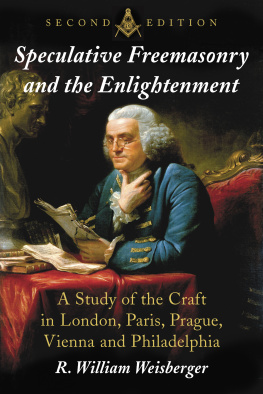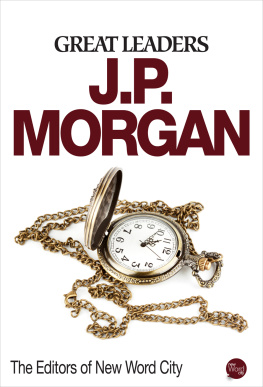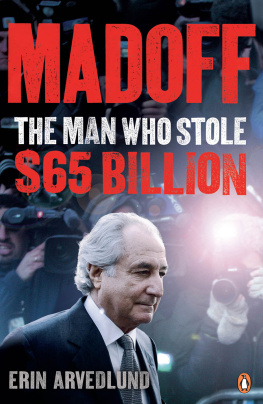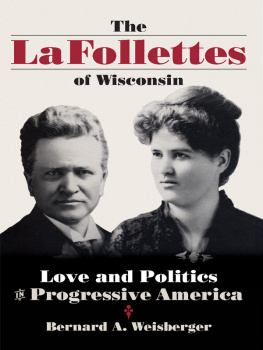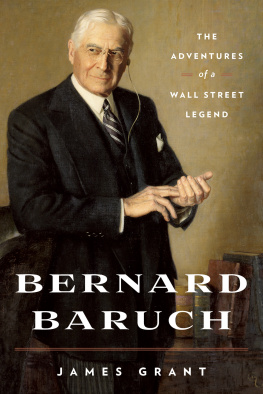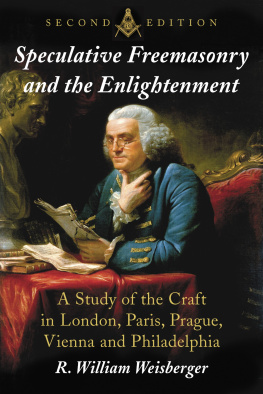Bernard A. Weisberger - J. P. Morgan
Here you can read online Bernard A. Weisberger - J. P. Morgan full text of the book (entire story) in english for free. Download pdf and epub, get meaning, cover and reviews about this ebook. year: 2017, publisher: New Word City, Inc., genre: Science. Description of the work, (preface) as well as reviews are available. Best literature library LitArk.com created for fans of good reading and offers a wide selection of genres:
Romance novel
Science fiction
Adventure
Detective
Science
History
Home and family
Prose
Art
Politics
Computer
Non-fiction
Religion
Business
Children
Humor
Choose a favorite category and find really read worthwhile books. Enjoy immersion in the world of imagination, feel the emotions of the characters or learn something new for yourself, make an fascinating discovery.
- Book:J. P. Morgan
- Author:
- Publisher:New Word City, Inc.
- Genre:
- Year:2017
- Rating:3 / 5
- Favourites:Add to favourites
- Your mark:
- 60
- 1
- 2
- 3
- 4
- 5
J. P. Morgan: summary, description and annotation
We offer to read an annotation, description, summary or preface (depends on what the author of the book "J. P. Morgan" wrote himself). If you haven't found the necessary information about the book — write in the comments, we will try to find it.
Tall and stiff, J. P. Morgan looked the part of an emperor. And he acted like one, too, making two United States presidents meet his terms to save the country from financial panic. His great power and princely style of life made him a living symbol of the might of money. Here, in this essay by the respected historian Bernard A. Weisberger, is his remarkable story.
J. P. Morgan — read online for free the complete book (whole text) full work
Below is the text of the book, divided by pages. System saving the place of the last page read, allows you to conveniently read the book "J. P. Morgan" online for free, without having to search again every time where you left off. Put a bookmark, and you can go to the page where you finished reading at any time.
Font size:
Interval:
Bookmark:
By 1910, the owners of Americas industries were mighty men. Their decisions meant good or bad times for whole cities, states, and regions. Jobs and prosperity for thousands rode on a nod or a shake of their heads - or at least , so most people believed. But in New York City, a passerby who looked in at a ground-floor window at No. 23 Wall Street might just catch a glimpse of a man who could make railroad presidents and giant manufacturers tremble when he frowned. From a neat, almost bare desk, John Pierpont Morgan ruled a vast banking empire. Modern business could neither live nor grow without the backing of credit. The country believed, with good reason, that J. P. Morgan could grant or deny credit to the most mammoth corporations of the day and ranked him first among the titans of business.
Morgan looked the part of an emperor. He was tall with a stiff moustache. S evere in appearance, his fiery red nose was inflamed by an incurable skin disease. His eyes were so fierce and dominating that no one would dare snicker at that nose. J. P. Morgan made two United States presidents meet his terms to save the country from financial panic. His great power and princely style of life made him a living symbol of the might of money. Men needed and feared him because early twentieth-century business activities had become immensely complicated as a result of the work of such industrialists as Hill, Rockefeller, and Vanderbilt.
Morgan did not rise from rags to riches as did most of the other early captains of industry. He was born in Hartford, Connecticut, in April 1837, to Junius Morgan, a successful merchant and broker who later became a prominent international banker. Young J.P. was educated in Boston and Switzerland and spent two years at the University of Gttingen in Germany. He went into the banking business at the age of twenty-four, and by the time he was twenty-six had a personal annual income of more than $50,000. This represented his profit from investment banking, a highly specialized business.
Commercial and savings banks ac cept deposits and make loans to indi viduals and small business houses. Investment banks do the same thing on a much larger scale and might be called bankers banks . When a very large corporation needs to raise money, it can do so in several ways. One is to sell shares of stock, which represent ownership of its properties. Buying stock entitles stockholders to vote for a companys directors, and to receive a part of its profit (after business expenses are met) in the form of divi dends. A corporation may also sell bonds. (Governments, too, sometimes float loans by the sale of bonds.) The bonds represent the corporations promises to pay the bondholders a certain sum at the end of a fixed period, plus interest at regular intervals. Such payments are legal debts, and if they are not met , the company can be declared bankrupt and forced out of business. Bondholders, however, are simply creditors of a corporation; they do not vote for its officers.
When corporations or governments sell stocks and bonds (or securities) amounting to millions, they cannot depend entirely on sales in small parcels if they are in any hurry to raise the money. They rely on great invest ment firms to find customers - usually other banks - w ho can make purchases in lots amounting to hundreds of thousands, and even millions of dol lars. The banking house making the sale charges a commission for its serv ices, and also earns interest and divi dends on the securities which it buys for itself.
The power of a great investment bank, however, is far mightier than its profits. It directs an immense flow of saved dollars to one industry or an other. If it guides investment wisely, there is prosperity. But if it markets the securities of badly managed or unsound corporations, the savings of millions of people are w iped out when those companies fail. Banks themselves are forced into ruin, commerce is halted, factory wheels stop turning, and depression ravages the country.
This was the business, and those were the risks, of the young J. P. Morgan. He was thoroughly successful at it. His firm sold bonds for the Federal and state governments, and for private industry. Through partnerships with banks in London and Paris, he found European customers for American securities. Thus, Morgan helped direct the flow of millions of dollars from Europe into the develop ment of American industries, which could not grow without them. As the years went by, Morgan found himself concerned with protecting the investments he had encouraged others to make. This brought him into the field of industrial peacemaking.
In 1879, Morgan arranged for the private sale of a big block of stock in the New York Central Railroad, then being run by William H. Vander bilt, son of the old Commodore. Six years later, Morgan heard something that disturbed him. A bankrupt little railroad called the West Shore ran up the west side of the Hudson, parallel to the Centrals east bank tracks to Albany. Morgan learned that the Pennsylvania Railroad was buying West Shores depreciated bonds and was planning to build westward, to compete with the Central for the Great Lakes rail traffic. William Vanderbilt already knew of this and organized a company to build a line, from Philadelphia to Pittsburgh, to battle the Pennsy for the rich coal and iron business of the West. Engineers were even then grading the route.
To Morgan, the prospects were alarming. The two giant companies would conduct savage rate-cutting wars and surely lose money. The price of both railroads securities in the market would drop. The men to whom Morgan had sold Central stock would suffer, and financial freebooters might gain control of both companies. Something had to be done.
First Morgan arranged to return from a European trip on the same boat with William H. Vanderbilt and had a long talk with him. Then, one warm July day, he took George B. Roberts, president of the Pennsylvania, for a cooling cruise up the East River on his private yacht. Whatever Morgan said must have been persua sive. The Pennsylvania dropped its plans to buy the West Shore, and the Central let the proposed new road across the southern part of its rivals territory remain unbuilt. (Years later, in the 1930s, the roadbed was bought by the state, and the modern Pennsylvania Turnpike follows it for miles.)
So successful was this first effort at reducing competition that Morgan went on to others. In 1886 , he got a number of railroad lines that owned coal mines to agree to fix coal prices and limit production, ending one source of big losses. And in 1889, there was a meeting of the great and mighty of the railroad world in the library of Morgans New York mansion. The presidents of almost every railroad east of Chicago - the Pennsylvania, the Erie, the Central, the Baltimore & Ohio, the Lehigh Valley, and the Lackawanna - were there. So were the heads of four or five of the countrys biggest banking houses. Morgan proposed that the railroad rulers agree not to build needless competing lines in each others territories; in turn, the bankers would not finance any such raids. An agreement of this sort was finally reached, although it was not altogether kept. But J. P. Morgan was emerging as a man who disliked cutthroat competition because it stifled business growth and reduced profits.
Four years later , his real opportunity came. In 1893 , the nation tumbled into an economic depression. Business stagnated; unemployed roamed the streets; and more than a hundred railroad companies, unable to pay their debts, were declared bankrupt. A sharp eye could have seen it coming.
In the 1870s and 1880s , dozens of promoters had built railroads senselessly and hastily. Sometimes they built in the neighborhood of an existing line, hoping to blackmail it into buying them out. Sometimes they built to get land subsidies and loans from railroad-hungry communities. Sometimes they built merely to sell stock on the market at a quick profit. In all such cases, securities were is sued far beyond any reasonable chance of dividends or repayments. Now the creditors were asking for their money.
Next pageFont size:
Interval:
Bookmark:
Similar books «J. P. Morgan»
Look at similar books to J. P. Morgan. We have selected literature similar in name and meaning in the hope of providing readers with more options to find new, interesting, not yet read works.
Discussion, reviews of the book J. P. Morgan and just readers' own opinions. Leave your comments, write what you think about the work, its meaning or the main characters. Specify what exactly you liked and what you didn't like, and why you think so.

